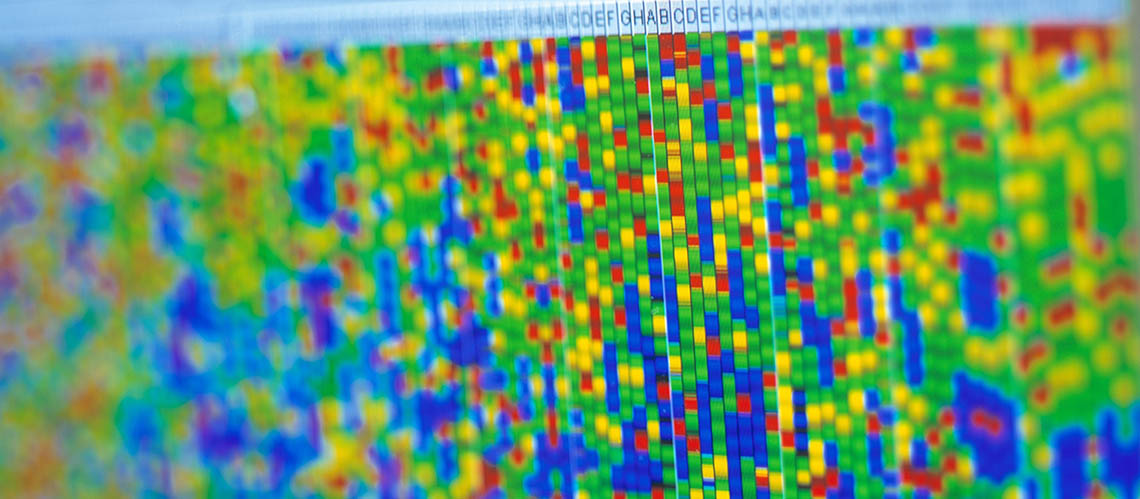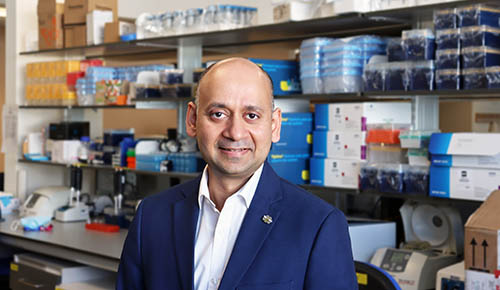Building global health networks to tackle rare genetic disorders
Rare conditions are thought to affect 1 in 17 people in the UK. There are approximately 7,000 known rare conditions, such as Huntington's disease and cystic fibrosis. Many are genetic, but understanding and treatment of these diseases varies around the world.

Global health systems can be funded and structured in different ways, and this means that the diagnosis and treatment of these rare conditions can be highly variable; some countries have differing levels of expertise and access to research when compared with other nations.
When studying these rare conditions, multiple counties have to be involved, due to the uncommon nature of these diseases. This makes international collaboration a vital part of rare genetic disease research.
The UK leads in genomics and advanced genomic approaches to rare disease studies. To support global research collaboration, initiatives such as the 100,000 Genomes Project offer access to data, technology and expertise for other researchers in the field.
Harnessing this knowledge, specialists at the Manchester Centre for Genomic Medicine (MANGEN) and genetics experts at Kasturba Medical College (KMC) in Manipal, India have been working together to identify rare genetic diseases and potential treatments for Indian patients.

Professor Siddharth Banka
Professor of Genomic Medicine and Rare Diseases, Consultant Clinical Geneticist, and Founding Clinical Director of the Manchester Rare Conditions Centre.
Global health, global knowledge
"Our definition of a rare condition is something that affects fewer than 1 in 2,000 people, and that's at the most common end of the rare spectrum. At the rare end, they might be conditions which affect only 1 in a million or several million individuals," explains Professor Siddharth Banka, Professor of Genomic Medicine and Rare Diseases at The University of Manchester and a consultant clinical geneticist.
"To really study those conditions, you need to have large networks regionally, nationally and internationally. So, especially in the study of rare genetic disorders, having those international collaborations is absolutely critical."
This means that any kind of study around a particularly rare disease might not be able to gain sufficient data through research solely carried out in Manchester or even the UK; global networks are the key to unlocking the knowledge that can help patients around the world.
"We can't study all diseases on our own. There might be certain studies that our collaborators want to carry out, but that they don't have enough patients for – so we help them, and vice versa," Professor Banka says.
"Collaboration is the norm and ethos of the rare disease research community."
Working with India
The medical genetics department at KMC is one of the largest in India and has become an important centre for patients with rare genetic diseases.
A formal collaboration between KMC and MANGEN began in 2019, but the two institutions have been working together for much longer, first through informal visits, and then via small collaborative projects.

Some of these have been funded through the Wellcome Trust/DBT India Alliance programme and the Global Challenges Research Fund (GCRF). The GCRF funding covered a joint PhD student who has spent time in Manchester and Manipal researching how genetic changes, called structural variants, cause certain rare diseases. It also enabled a bioinformatics specialist from Manipal to spend two weeks in Manchester learning about whole-genome sequencing analysis.
Another Manchester PhD student on a Wellcome Trust doctoral training programme obtained patient samples on a visit to Manipal, and has been applying technologies that were unavailable in India at the time to help those patients.
“The study of rare diseases often leads to novel fundamental insights about biology.”
Professor Siddharth Banka
A genetic counsellor from Manchester has also visited Manipal, and another trainee scientist from our diagnostic lab spent her elective in Manipal in November 2022.
"Through the funding for the joint PhD students, we've got an excellent student who's working on both sites, and that's led to several very important discoveries already," Professor Banka says.
The partnership has also has helped inform the set-up of the new Manchester Centre for Rare Conditions. This is a collaboration with partners from around the region – including the University – and aims to strengthen international networks of institutions working in the field of rare diseases. KMC also plans to set up a similar centre in India.
Making an impact
All of this research could do much to improve the path to diagnosis for patients with rare genetic diseases – and for their families – if the triggers for these conditions can be identified.
"Even if there might not be an obvious treatment for a disease at present, just getting an accurate diagnosis can be extremely helpful for the patient, their family, and the clinician looking after the affected individual," Professor Banka says.
"The study of rare diseases often leads to novel fundamental insights about biology. Furthermore, development of new diagnostics and therapies can have significant commercial application.
"The discoveries made in this collaboration will help patients in other parts of the world, making the research relevant to a broader population."
Learn more about Manchester's global health collaborations.
